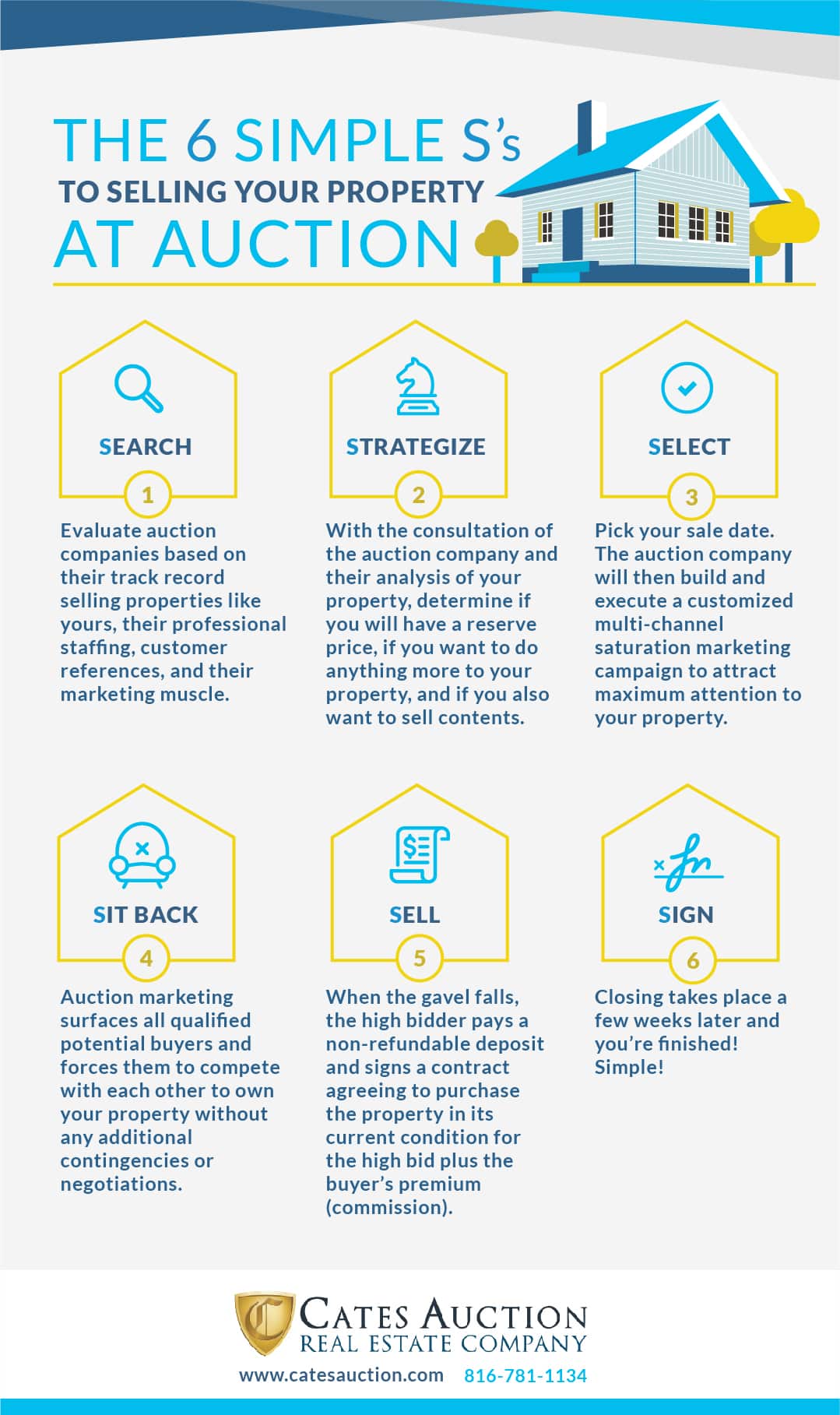There are two main reasons people selling real estate miss out on the benefits of a professional auction strategy. Either they assume (incorrectly) that the process is for distressed properties or they assume (incorrectly) that the process is mysterious.
If you’re thinking about selling your home or already trying unsuccessfully, you owe it to yourself to explore the auction strategy. Who doesn’t love massive targeted marketing and buyers competing with each other to own your property? The hotter the market, the higher the price goes, and there’s no negotiating or hidden costs to deflate the great price you got. Definitely worth a quick look!
Though professional real estate auctions have been around for years, most homeowners don’t really understand how they work. As a result, they stick with what they know and end up taking the first offer that comes along, or endure the ongoing swirls of an ordinary listing approach.
While professional real estate auction firms like Cates Auction are highly selective about properties they will accept for auction, the process for the fortunate sellers is surprisingly simple. Herewith, the six simple “S’s” to selling your home at auction…
It really is that simple! Cates Auction and other top-ranked firms will provide a free property analysis so that you can explore the option and evaluate the company with no obligation or risk. If you like what you see and your property is accepted for auction, you’ll enjoy a short, hassle-free sale for true market value on the date you choose.

Sign Me Up for Auction updates and the latest news!